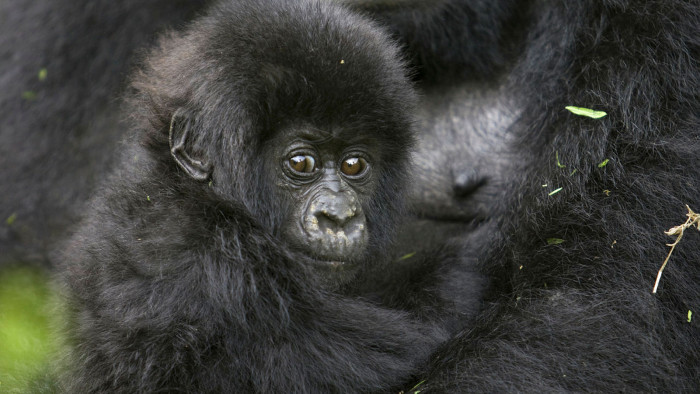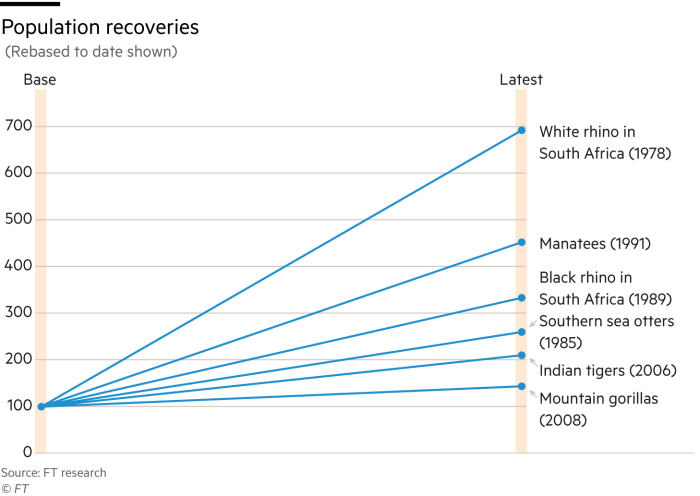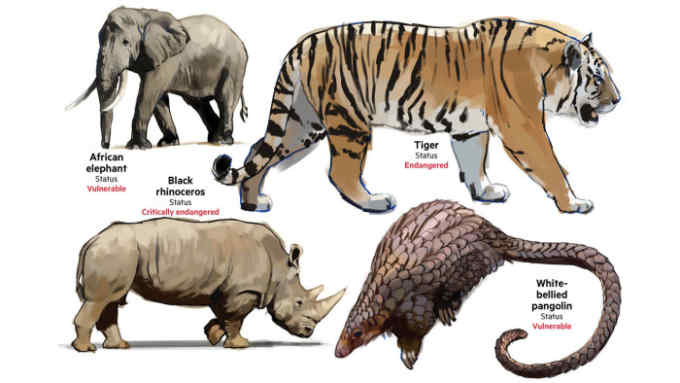Extinction crisis: born to rewild

Roula Khalaf, Editor of the FT, selects her favourite stories in this weekly newsletter.
As people multiply, animals disappear at dizzying speed. But fatalism is unwarranted. Species ranging from rhinos to snails have returned from the brink. Animals do best when they have local value beyond the illegal wildlife trade, combated by the FT Seasonal Appeal for the Zoological Society of London.
The magnificent mountain gorilla has recovered – just – from only 250 individuals in Virunga National Park in 1981 to over 600 today. Florida’s manatee population has quintupled to almost 6,000 since 1991.
Most people believe the point of no return for larger animals is represented by a single living specimen, like Lonesome George, the last Pinta Island tortoise. But “functional extinction” occurs in conservation shorthand when as few as 50 individuals remain, says Mark Wright of World Wildlife Fund. Below this figure, the gene pool may be too shallow for breeding programmes to succeed.

Animals need local cultural and economic value for conservationists to win arguments over land use. Earlier this year Lex calculated lions can be worth four times more to Africans for wildlife tourism than trophy hunting.

FT Seasonal Appeal

Please click here to donate. This story is part of the FT’s Seasonal Appeal for ZSL, an international conservation charity working to protect animals and fight the illegal wildlife trade
Inhabitants of Moorea in French Polynesia supported the rescue of Partula tree snails from introduced predators because of their place in local culture, including jewellery. Only four remained of one species. Reintroduced, they are thriving, though precise population data is unavailable. As ZSL’s Paul Pearce-Kelly points out, counting small animals is hard - especially when they live up trees.
Lex Data Points are short articles on non-corporate topics.

Comments